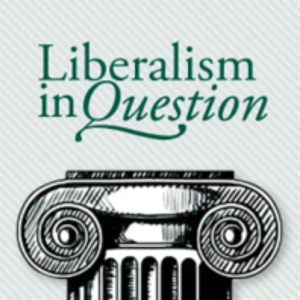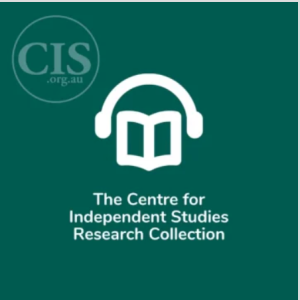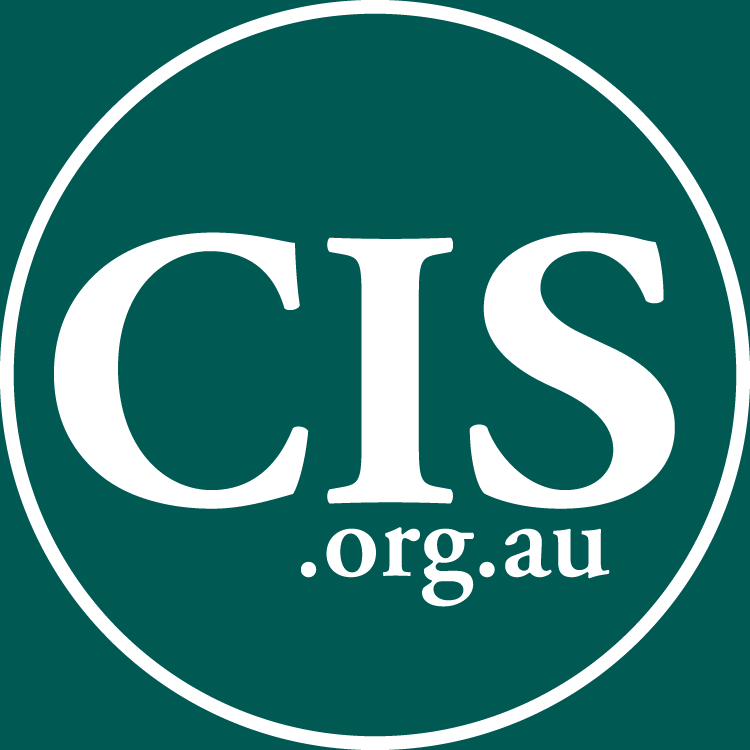Centre for Independent Studies
Let’s share good ideas. 💡 The Centre for Independent Studies promotes free choice and individual liberty and the open exchange of ideas. CIS encourages debate among leading academics, politicians, media and the public. We aim to make sure good policy ideas are heard and seriously considered so that Australia can prosper.
Episodes

Thursday Jul 18, 2024
Thursday Jul 18, 2024
Watch here: https://youtu.be/Xzk6zYXxvQ4 Reflecting on his pivotal role in the development of a proposal to recognise Australia’s Indigenous peoples in the Constitution, Damien Freeman explains how something that started off as an exercise in settlement politics ended in a failed referendum.Damien Freeman is a visiting scholar at the PM Glynn Institute. He founded and directs the Governor-General's Prize for the Constitution Education Fund Australia. Together with Julian Leeser MP, he established Uphold and Recognise, a non-profit organisation committed to upholding the Australian Constitution and recognising Indigenous Australians. In 2015, Noel Pearson launched The Australian Declaration of Recognition, a pamphlet written by Freeman and Leeser. Damien lectures on ethics and aesthetics at Pembroke College, Cambridge, and convenes a public conversation series with Dr Simon Longstaff AO at the Art Gallery of New South Wales. He is currently working on a project investigating the conservative cast of mind in contemporary Australia, with particular reference to Tony Abbott.

Friday Jul 05, 2024
Friday Jul 05, 2024
Watch here: https://youtu.be/y9v7xJQCfowWhat would have happened if Israel did nothing on October 8th? Can the "war" in Gaza be called a "moral war"? Bret Stephens argues on this week's episode of Liberalism in Question that the "war" in Gaza is an "existential war" for the survival of Israel of the safety of Jewish people internationally. Bret Stephens is an Opinion columnist for The New York Times, writing about foreign policy, domestic politics and cultural issues. Dive in as we explore the idea of liberalism in America and the greater conflicts in the Middle East.

Thursday Jul 04, 2024
Thursday Jul 04, 2024
International data have repeatedly shown many Australian school students struggle with mathematics. Around 10% of students achieve at a level that requires additional support (NAPLAN) or are below the international benchmark Trends in International Maths and Science Study (TIMSS) — which is the equivalent of around 400,000 Australian students per year. More than a quarter of 15-year-olds are low performers in the subject. Learn what you need to know about Why Australia Needs Universal Early Numeracy Screening. Kelly Norris is a Senior Research Associate at CIS working on evidence-based identification and intervention processes for students with or at risk of maths difficulties. Prior to joining CIS in 2024, she has worked as a university lecturer, educational consultant, product developer, consultant teacher and classroom teacher with a particular focus on effective intervention within a multitiered system of support (MTSS). She holds a Bachelor of Education, Graduate Certificate of Education (learning difficulties) and Master of Education. In the latter research she investigated strategies and tools to improve identification and support for students with mathematical difficulties.#auspol

Monday Jun 17, 2024
Monday Jun 17, 2024
Counting the Cost: Subsidies For Renewable Energy By Michael Wu.For all references and graphs, please download the publication at the centre for independent studies website where you can also become a member of CIS. As this paper is graph and data-heavy, it’s a good idea to have the paper open as you listen along. Download here: https://www.cis.org.au/publication/counting-the-cost-subsidies-for-renewable-energy/CIS Membership - https://www.cis.org.au/membership-2-step-1/ YouTube - https://www.youtube.com/@CISAus Twitter - https://twitter.com/CISOZFacebook - https://www.facebook.com/CentreIndependentStudies/Linkedin - https://www.linkedin.com/company/the-centre-for-independent-studies/Telegram - https://t.me/centreforindependentstudiesPodcasts - https://www.podbean.com/podcast-network/centreindependentstudiesrq9trhf6 CIS - https://www.cis.org.au/ #auspol #nuclear #australiannuclear #energymarket

Wednesday Jun 12, 2024
Wednesday Jun 12, 2024
The federal, state and territory Energy Ministers have introduced a shadow carbon price for the national electricity market. This ‘value of emissions reduction’ (VER) sets the value of carbon abatement at $66 per tonne in 2023, rising six-fold to $420 by 2050. Costs will be passed onto consumers through electricity network projects because the regulatory investment framework will now include the interim VER as a benefit in their cost benefit analyses. This change is likely to increase the assessed benefits of projects that claim to reduce emissions, projects which might otherwise have been deemed uneconomic.Read the rest of this research here: https://www.cis.org.au/publication/the-impact-of-a-shadow-carbon-price-on-our-electricity-bills/Hosted by Karla Pincott, What You Need to Know About is the podcast that covers exactly that. Hear from CIS' experts on the key points of their research, providing you with concise and insightful overviews of complex topics. In each episode, we break down intricate policy issues, economic trends, social challenges, and more, delivering the essential information you need to stay informed in today's fast-paced world.
Join us as we cut through the noise and dive straight into the heart of matters that shape our society. Whether you're a policy enthusiast, a curious mind, or just someone looking to grasp the essentials without getting lost in the details, What You Need to Know About is your go-to source for bite-sized yet comprehensive insights.Youtube: https://www.youtube.com/@CISAus Twitter - https://twitter.com/CISOZ Facebook - https://www.facebook.com/CentreIndependentStudies/ Linkedin - https://www.linkedin.com/company/the-centre-for-independent-studies/ Telegram - https://t.me/centreforindependentstudies #auspol #nuclear #nuclearaustralia #australia #energymarket #energy #netzero #net0 #cis
Thursday May 23, 2024
Thursday May 23, 2024
Oppositions hold governments to account, raise issues of public concern, represent aggrieved citizens, propose alternative policies. Having a viable and energetic opposition is an essential for the health of any democracy.
The Art of Opposition is the first detailed published research study of Australian oppositions across all federal and state jurisdictions and with an additional international coverage of the United Kingdom, Canada, United States and European nations.
With senior academic contributors from across Australian and international universities along with practitioners who, like John Howard, have led oppositions, former chiefs of staff of opposition leaders and other senior support staff, The Art of Opposition provides an up-to-date account of what oppositions do and how they do it. Other contributors include David Clune OAM, Rodney Tiffen, Brendan McCaffrie and Rodney Smith.
Scott Prasser is currently a Senior Fellow at CIS. Scott has worked in federal and state governments in senior policy and research positions. He has published and commented widely on state and federal politics and has focused his work on royal commissions and public inquires. His recent publications include Royal Commissions and Public Inquiries in Australia released in 2021 and The Whitlam Era released in 2022.
John Howard OM AC was Prime Minister of Australia from 1996-2007 and Member of the Australian Parliament for Bennelong from 1974-2007.
Andrew Blyth is the John Howard Fellow at CIS. His prior roles include managing the John Howard Prime Ministerial Library and as a senior adviser and chief of staff. Andrew is author of recent CIS research paper; From ANZUS to AUKUS: Howard’s Legacy in Shaping Australia’s Defence Strategy.
Tom Switzer is the Executive Director at the Centre for Independent Studies, and formerly hosted Between the Lines on the ABC’s Radio National. He is also a regular contributor to The Australian and the Australian Financial Review.

Sunday May 19, 2024
Sunday May 19, 2024
Watch the podcast here: https://youtu.be/lYls1XLQG7s#auspol #freemarket #economicsRobert Carling is a Senior Fellow at the Centre for Independent Studies. Robert is researching and writing about fiscal policy, taxation and federalism. Prior to joining the CIS, Robert was Executive Director, Economic and Fiscal at the New South Wales Treasury from 1998 to 2006.Previous positions have been with Commonwealth Treasury, the World Bank and the International Monetary Fund. He holds academic qualifications in economics and finance from the London School of Economics and Political Science, Georgetown University and the University of Queensland.Are you looking for sound, thought-provoking conversations on current affairs, politics, and culture from a Classical Liberal perspective? If yes, you are in the right place. Liberalism in Question engages some of our society’s most prominent researchers, political figures, and free speech advocates --finding out their views on the state of Classical Liberalism.

Wednesday May 15, 2024
Wednesday May 15, 2024
The Australian Government wants to transition our electricity system to net zero carbon emissions by relying on wind and solar power – excluding alternatives such as small nuclear reactors. Its justification for this switch rests on the claim that a renewables-dominated system is environmentally beneficial and economically superior to using fossil fuels and nuclear energy.
But its premise is based on a flawed argument which has left out key elements which portray a different picture.
Dive in with Karla Pincott and Aidan Morrison, the Director of Energy Research, to learn what you need to know about the six fundamental flaws underpinning the energy transition. You can also read the whole paper here: https://www.cis.org.au/publication/the-six-fundamental-flaws-underpinning-the-energy-transition/
Hosted by Karla Pincott, What You Need to Know About is the podcast that covers exactly that. Hear from CIS experts on the key points in their research, providing you with concise and insightful overviews of complex topics. In each episode, Karla breaks down intricate policy issues, economic trends, social challenges, and more, delivering the essential information you need to stay informed in today's fast-paced world.Join us as we cut through the noise and dive straight into the heart of matters that shape our society. Whether you're a policy enthusiast, a curious mind, or just someone looking to grasp the essentials without getting lost in the details, What You Need to Know About is your go-to source for bite-sized yet comprehensive insights.#auspol #nuclear #energytransition

Tuesday May 07, 2024
Tuesday May 07, 2024
Watch Here: https://youtu.be/pNLmQbvdnJcMatthew Ridley is a British science writer, journalist and businessman. He is known for his writings on science, the environment, and economics, and has been a regular contributor to The Times newspaper. Ridley was chairman of the UK bank Northern Rock from 2004 to 2007. Ridley is a libertarian, and a staunch supporter of Brexit. He inherited the viscountcy in February 2012 and was a Conservative hereditary peer from February 2013, with an elected seat in the House of Lords, until his retirement in December 2021.

Saturday Apr 13, 2024
Saturday Apr 13, 2024
How to Build Low-Cost Nuclear: Lessons from the world by Aidan Morrision. First published on April 11, 2024.
For all references and graphs, please download the publication at the centre for independent studies website where you can also become a member of CIS. As this paper is graph and data-heavy, it’s a good idea to have the paper open as you listen along. The paper can be downloaded from here: https://www.cis.org.au/publication/how-to-build-low-cost-nuclear-lessons-from-the-world/

Centre for Independent Studies
Let’s share good ideas. 💡
The Centre for Independent Studies promotes free choice and individual liberty and the open exchange of ideas. CIS encourages debate among leading academics, politicians, media and the public. We aim to make sure good policy ideas are heard and seriously considered so that Australia can prosper.




